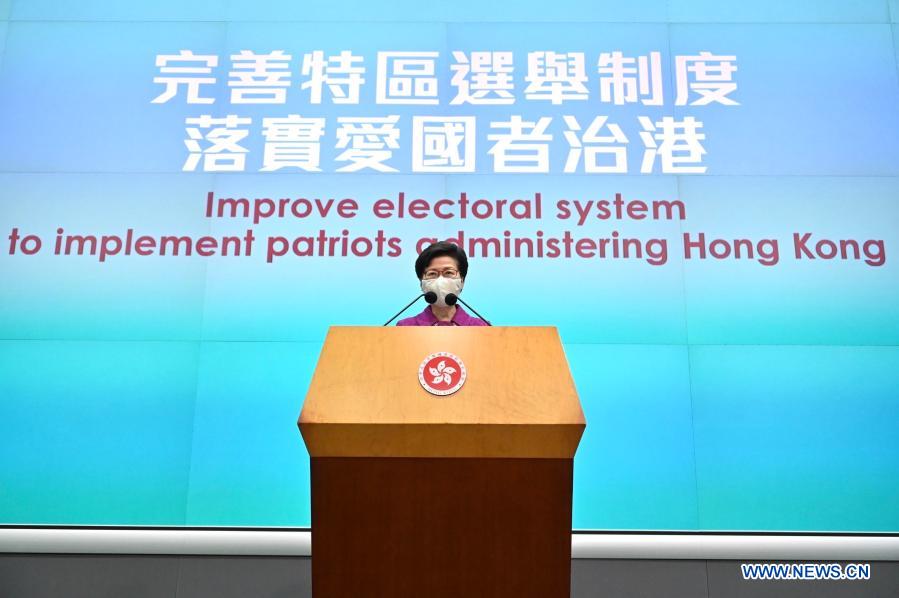HKSAR gov't to work with central authorities to improve electoral system in 3 aspects: Carrie Lam
Carrie Lam, chief executive of the Hong Kong Special Administrative Region (HKSAR), said on Monday that the "decision plus amendment" approach to improving the electoral system of the HKSAR is legal and constitutional, and the HKSAR government will cooperate with the central authorities to carry out the work in three aspects.
Carrie Lam, chief executive of the Hong Kong Special Administrative Region (HKSAR), said on Monday that the "decision plus amendment" approach to improving the electoral system of the HKSAR is legal and constitutional, and the HKSAR government will cooperate with the central authorities to carry out the work in three aspects.

Carrie Lam, chief executive of the Hong Kong Special Administrative Region (HKSAR), attends a press conference in Hong Kong, south China, March 8, 2021. (Xinhua/Lui Siu Wai)
Lam elaborated on the three aspects at a press briefing in Hong Kong.
Firstly, the HKSAR government will push forward the explanation work. Secondly, the Constitutional and Mainland Affairs Bureau and the Department of Justice of the HKSAR government will undertake the work of amending local electoral legislation.
Thirdly, through the amendment of the local electoral legislation and the full and accurate implementation of the methods for the selection of the HKSAR's chief executive and the formation of the HKSAR's Legislative Council in Annex I and II of the HKSAR Basic Law, amended by the Standing Committee of the National People's Congress, the HKSAR government will properly arrange elections in the next 12 months.
Lam also expressed respect for the central authorities' leading role and decision making in this regard. She stressed that there is an urgent need to plug the loopholes and improve the electoral system of the HKSAR, so that the electoral system may return to the original aspirations, channels and frameworks of the principle of "one country, two systems".

